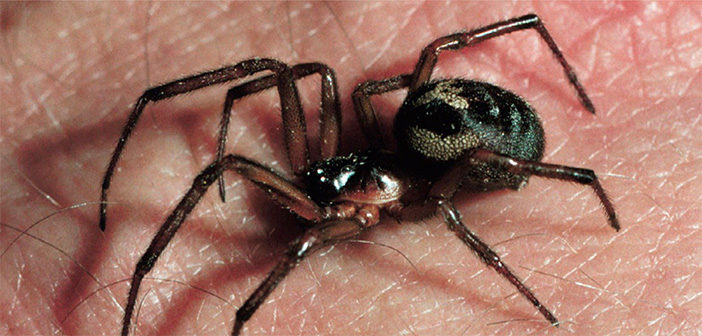The British Pest Control Association said a seasonal spike in sightings of False Black Widow spiders is likely to be caused by males in search of a mate,
BPCA is urging people to avoid contact with False Black Widow spiders, but not to panic if they spot one in their home. The spiders are not aggressive, but may bite if there is accidental contact.
Natalie Bungay, technical and compliance manager at BPCA, said: “The spiders increase in numbers during warmer months, but in late summer and autumn they may become particularly conspicuous as the males wander more extensively in search of a mate.
“False Widow spiders are not aggressive and will not launch an unprovoked attack on people.”
Usually sited at least 1.5 metres off the ground, False Widow webs are a loose tangle of threads with a tube of silk in one corner leading into a crevice where the spider will hide during the day.
The webs are typically found around window and door frames as well as in eaves, porches and conservatories.





